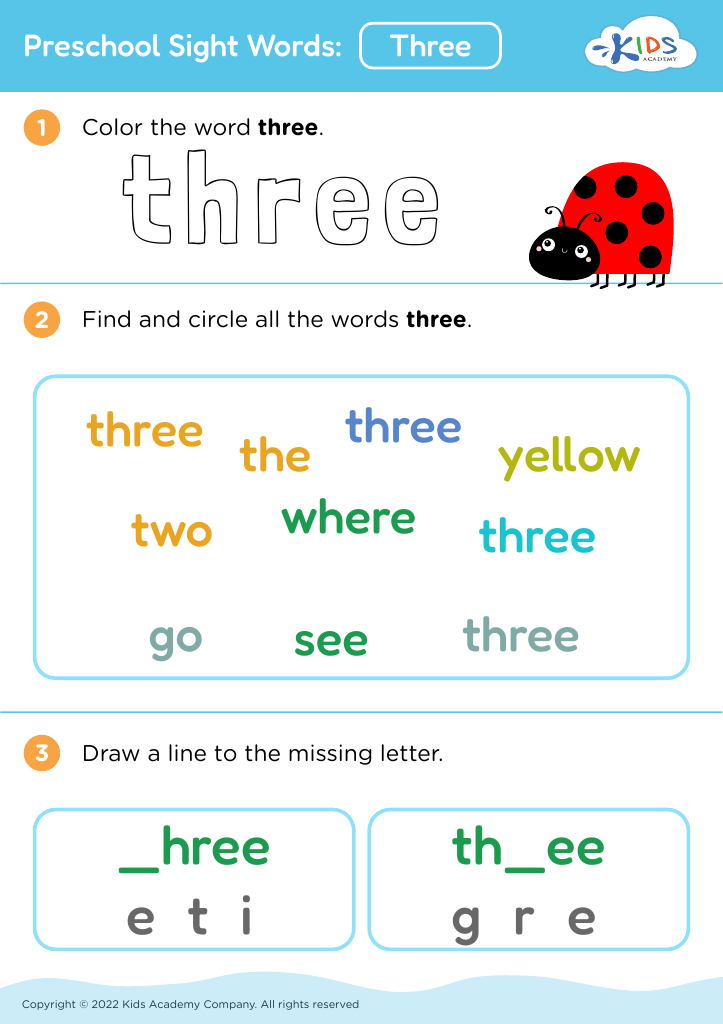Multiplication practice Building Vocabulary Worksheets for Ages 3-7
5 filtered results
-
From - To
Welcome to our engaging "Multiplication Practice Building Vocabulary Worksheets" designed for children ages 3-7! These fun and interactive worksheets promote early math skills while enhancing vocabulary development. Each worksheet combines multiplication exercises with language-building activities, encouraging young learners to connect numbers and words. Our resource fosters essential skills through colorful illustrations, relatable examples, and clear instructions, making learning enjoyable. Perfect for classrooms or home use, these worksheets help reinforce multiplication concepts and inspire a love for math and reading. Dive into our collection and watch your child's confidence grow as they master multiplication and vocabulary in a playful way!
Multiplication practice and vocabulary building are essential components of a child’s early education, particularly for ages 3-7. At this age, children’s brains are incredibly receptive, making it a prime window for developing foundational skills that will serve them throughout their lives.
Practicing multiplication enhances a child’s numerical fluency, empowering them to quickly and confidently tackle more complex math as they progress in school. Introducing multiplication in a playful manner, such as through games or songs, can make the learning process enjoyable and effective, promoting a love for math.
Simultaneously, building vocabulary expands a child's language skills, fostering not only their comprehension but also enhancing their ability to express themselves. A robust vocabulary supports reading development, critical thinking, and communication abilities. Activities like storytelling, rhyming games, and engaging discussions help children connect words with their meanings and contexts, facilitating deeper understanding.
When parents and teachers prioritize these areas simultaneously, they create a rich learning environment that encourages curiosity and creativity. This dual focus transforms abstract concepts into tangible knowledge, preparing children for future academic challenges and fostering a lifelong appreciation for learning. Ultimately, caring about multiplication practice and vocabulary enables children to thrive in a world where these skills are crucial.




















.jpg)















